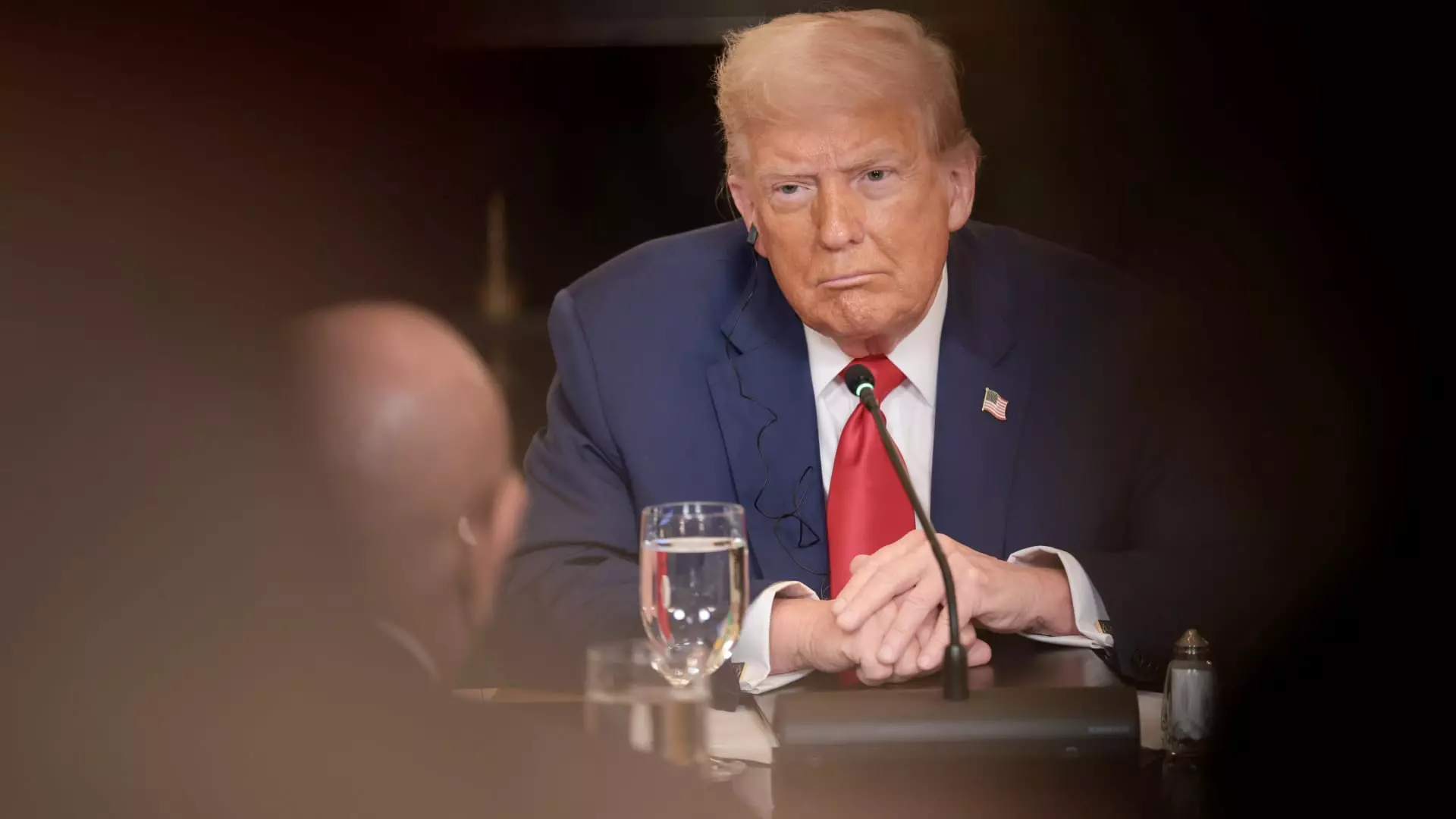The recent calls by President Donald Trump to unseal Jeffrey Epstein’s grand jury transcripts ignite a complex debate about transparency, secrecy, and the scope of justice. On the surface, the desire to release these transcripts seems rooted in a moral obligation to uncover truths that many suspect have been conveniently buried. However, the entrenched protocols surrounding grand jury proceedings are rooted in a fundamental tension between protecting witnesses and the public’s right to know. The default secrecy isn’t arbitrary but designed to ensure that justice isn’t compromised by premature disclosure, yet it can fuel suspicion when high-profile cases collide with political interests.
In this case, Trump’s push raises eyebrows. Is it earnest—aimed at exposing potential misconduct? Or is it strategic—wielding the release as a political tool to undermine opponents or distract from broader accountability? The fact that the transcripts remain sealed isn’t solely a procedural choice but a reflection of the uncomfortable truths they may contain. Releasing them without thorough judicial oversight risks exposing individuals unjustly or compromising ongoing investigations. Yet, in an age where transparency is demanded at every turn, dismissing such protocols signals an imbalance—where political convenience begins to overshadow the integrity of justice itself.
The Politics of Transparency and Conspiracy
The Epstein saga isn’t just about a convicted sex offender; it’s a mirror reflecting the deep frustrations many feel about elitism and power. The conspiracy theories swirling around Epstein predictably thrive in this climate of secrecy. Supporters argue that the official narrative—Epstein’s death, the lack of a “client list”—smacks of government cover-ups. The fact that Epstein, connected to prominent figures like Bill Clinton and Prince Andrew, is surrounded by whispers of blackmail and elitism fuels the belief that the system has failed spectacularly. These theories resonate with a segment of the population that feels alienated by a justice system seemingly protecting the wealthy and powerful.
While skepticism can be healthy in a democracy, uncritically embracing conspiracy compromises rational discourse. Yet, it’s valid to question if justice has been served when powerful individuals seemingly skate away from accountability. The debate over whether to unveil the transcripts is less about legal technicalities and more about who gets to control the narrative of truth. Under that lens, the secrecy surrounding Epstein’s case becomes a symbol of the larger failure of accountability in a society where money and connections often dictate outcomes.
The Role of Partisanship and Political Motivation
The political dynamics woven into this controversy demonstrate how law, justice, and power become tools for partisan advantage. Trump’s framing of the Epstein files as a “SCAM” orchestrated by Democrats exemplifies how high-profile legal issues are weaponized amid a polarized environment. The narrative for some conservatives is that the entire controversy points at an attempt to tarnish Trump or his allies, which fuels trust issues and deepens partisan divides. Conversely, the call by some GOP members for greater transparency signals internal disagreement about how justice should operate—whether it should be selective or comprehensive.
It’s notable that despite the calls from some quarters for further disclosure, others, including the White House, prefer caution, fearing uncontrolled revelations or politicization. The Justice Department’s repeated assertions that no credible evidence links Epstein to a “client list” or blackmail ring do little to quell suspicion. In a reality where elite power seems immune from scrutiny, transparency becomes a double-edged sword—either a tool for accountability or an instrument of chaos, depending on who wields it.
The Justice System’s Double Bind
Ultimately, the Epstein case underscores a troubling paradox within the justice system: the tension between safeguarding individual rights and pursuing the public’s right to transparent truth. Grand jury secrecy exists to prevent undue influence, protect witnesses, and preserve the integrity of criminal proceedings. Yet, when these protections hide uncomfortable truths, they fuel theories of corruption and conspiracy. The ongoing debates about unsealing documents highlight how legal procedures can become battlegrounds for wider societal mistrust.
The FBI memo dismissing claims of a “client list” or blackmail schemes also exemplifies how official narratives are carefully curated. While the memo supports the conclusion that Epstein committed suicide, those conclusions are met with skepticism by many, reflecting a broader tendency to distrust institutional authority. The question remains: can justice be truly achieved when the public remains divided, and when political motivations color perceptions of truth?
In a society increasingly fractured by misinformation and partisan loyalties, the decision to release or withhold information about Epstein’s case is as much about public trust as it is about legal protocol. The governance of such explosive information demands a delicate balance—where accountability doesn’t capitulate to political expediency, yet where secrecy doesn’t obscure the quest for truth. It is in this gray area that modern justice struggles to find its footing amid the turbulence of power, privilege, and public expectation.


Leave a Reply